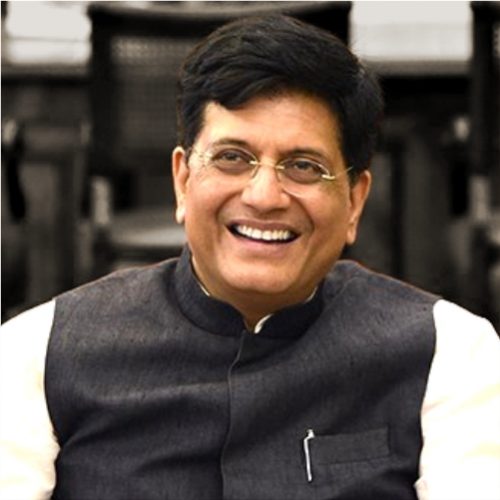Union Minister of Commerce and Industry, Piyush Goyal, on Thursday called on industry leaders to enhance supply chain resilience by reducing overdependence on specific regions and embracing new technologies, with the goal of achieving greater self-reliance in the energy sector.
Speaking at the 11th India Energy Storage Week (IESW) 2025 in New Delhi, Goyal outlined a broad vision for India’s clean energy future, stressing the need to focus on the entire value chain — from raw materials and cell components to battery packs, semiconductors, energy management systems, and recycling. He said building a strong, self-sustaining clean energy ecosystem is essential for India’s long-term energy security.
Goyal reaffirmed India’s commitment to achieving 500 GW of renewable energy capacity by 2030 and highlighted the pivotal role energy storage will play in that transition. “As Prime Minister Narendra Modi has rightly said, ensuring energy security for our citizens is not just a priority but also a responsibility,” the minister noted.
On the infrastructure front, Goyal emphasized the importance of collaborative efforts to develop both charging networks and battery swapping systems. These advancements, he said, are crucial to accelerating the adoption of electric vehicles and ensuring that e-mobility remains affordable and accessible.
He also stressed that a wide range of storage technologies — including batteries, pumped hydro, geothermal, and nuclear — will be necessary to meet the country’s growing energy demands. He added that the energy sector is set to be a cornerstone of India’s shift to renewable power, a transformation already well underway over the past decade.
During his address, Goyal noted a 4,000 per cent increase in India’s installed solar capacity and said the country now boasts 227 GW of renewable energy capacity. He said India is likely the first G20 country to have already met its Nationally Determined Contributions (NDCs) under the Paris Agreement.
Highlighting progress in domestic manufacturing, Goyal pointed out that India’s solar photovoltaic module capacity has grown nearly 38-fold, while solar cell capacity has increased 21-fold over the last 10 years. He also spoke about the PM Surya Ghar Yojana, which aims to install rooftop solar panels in 1 crore homes, helping reduce electricity bills and enhance energy independence for households.
He further mentioned the PM-KUSUM scheme, designed to promote the use of solar pumps in agriculture, and highlighted the government’s Production Linked Incentive (PLI) scheme aimed at expanding the manufacturing of Advanced Chemistry Cells (ACC).
Goyal proposed a four-pronged strategy to achieve energy independence: targeted innovation, infrastructure expansion, resilient supply chains, and comprehensive value chain development. He stressed the need for India to lead in research and development, especially in next-generation battery chemistries, solid-state and hybrid storage systems, and circular supply chains.
India Energy Storage Week (IESW) is a key industry platform focused on energy storage, electric mobility, battery manufacturing, and green hydrogen. The 2025 edition brought together global experts, policymakers, researchers, and business leaders to discuss innovation and policy frameworks critical to India’s clean energy transition.















